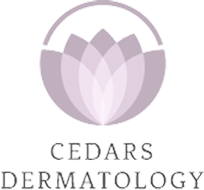Acne Or Rosacea?
When it comes to skin, it pays to call in the experts. After all, without a detailed skin assessment from a trained dermatologist, you may not know what condition you have and may be ruling out treatments that could help. Conversely, you might be making things worse by trying a treatment that’s intended for a different condition. Today our London experts discuss rosacea and acne.
With skin clinics in both Northwood and Elstree, we’re well-placed for those living in and around the capital. With our skills and knowledge, you can help target any skin concern and boost your confidence along the way. In this post, we’ll talk through the differences between acne and rosacea, which have some similar symptoms and may be confused with one another.
Identifying your skin condition
The main sign of acne is spots, which mainly appear on the face, but can also present on the back and chest. These include:
– Blackheads (black bumps) and whiteheads (white bumps)
– Papules (red bumps) and pustules (white-tipped bumps)
– Nodules (lumps under the skin) and cysts (similar to boils)
Acne also causes inflammation (redness) and skin can feel greasy and sore to the touch.
Rosacea affects only the face. It has numerous symptoms that, on the whole, differ from acne:
– Dryness of the skin
– Sore or crusted eyelids (blepharitis)
– Swelling or thickness to the skin
– Yellow or orange patches
– Burning and stinging of the skin
– Small bumps, sometimes filled with pus
The best way to ascertain whether you have rosacea or acne is to book in with your dermatologist for a skin assessment.
Causes of acne and rosacea
While acne is caused by over-production of oil, attributed to changing hormones (which is why the condition is common in pregnancy and puberty), rosacea doesn’t have a determinable cause. However, both acne and rosacea are thought to be linked to diet, stress and UV light. Neither condition is associated with cleanliness and acne can actually be exacerbated by excessive washing.
Susceptible skin
Acne affects most of us in our lifetimes, and rosacea affects about 5% of the global population. Rosacea is also more common in women and those with light skin. Whatever the case, you can help care for your skin through using sun protection, managing your stress levels and seeking adequate treatment at a reputable skin clinic.
Available treatments
Both acne and rosacea can be kept under control through topical creams and oral antibiotics, and rosacea treatment can also include IPL (lasers). It might be that making changes to your diet can have an effect on your skin, too, and skincare should also be considered – not least because the ‘wrong’ products can make inflammation worse.
Your dermatologist will be able to assess your skin and put together a tailored treatment plan based on the severity of either acne or rosacea, and may also prescribe appropriate medicines.
Booking acne & rosacea treatment
Visit our contact page for full details on how to book in with our skilled dermatologists, whether in Northwood or Elstree. Don’t forget to take a look through our other blogs for tips, tricks and advice on all things skin!

